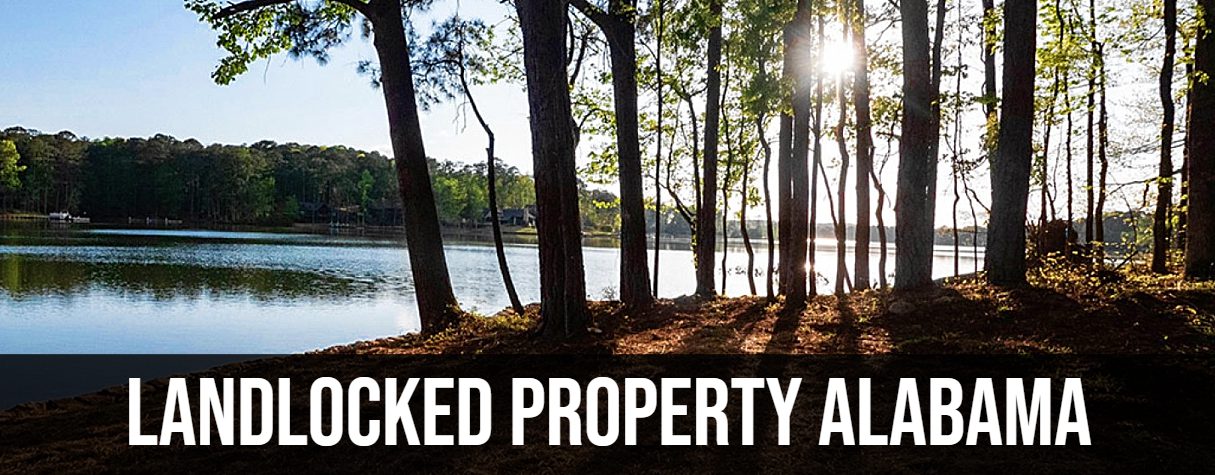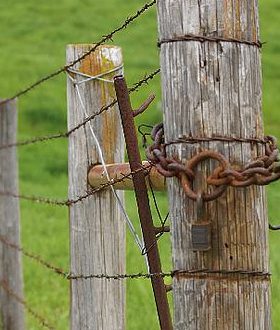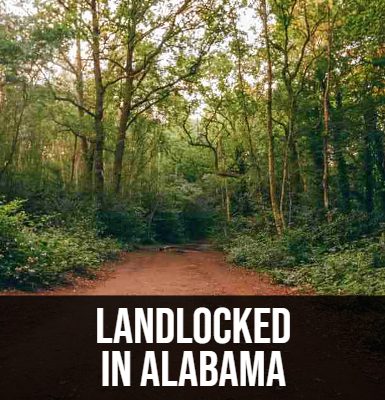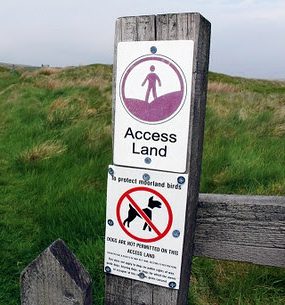
Before you envision yourself as the proud owner of a secluded piece of landlocked property Alabama, you need to realize the challenges and rewards you’re getting yourself into. Landlocked properties are like elements, in the realm of real estate. They can hold both pleasant surprises and setbacks. Whether you’re an investor or simply intrigued by these unconventional parcels having a thorough understanding can significantly impact your decisions. All a little extra effort could lead to discovering a truly distinctive opportunity don’t you think? So get ready as we delve into the misunderstood yet surprisingly captivating world of landlocked properties.

Understanding Alabama Landlocked Property
Picture this: you’ve found the perfect piece of land in the heart of Alabama. It’s got trees, maybe a little stream, and all the peace and quiet you could ever want. But there’s one tiny problem—getting there is like trying to find a secret entrance to a speakeasy in the 1920s. There’s no direct access to a public road, which makes your land technically “landlocked.” This situation, while not ideal, is more common than you might think, especially in the more rural parts of Alabama where properties can be tucked away, surrounded by other privately owned land.
In the real estate world, landlocked properties are those quirky parcels that require a bit of ingenuity to access. They’re the kind of properties that get real estate investors thinking creatively, whether it’s about negotiating with neighbors or figuring out alternative uses. While they might sound like they belong in a mystery novel, landlocked properties are very much a reality and can present both challenges and opportunities depending on how you approach them. The key is understanding your rights and the legal pathways available to you, so you’re not left feeling like you’ve bought a plot on the moon.
Legal Rights & Easements
Now, let’s talk about the legal side of things. Owning land is great, but getting to it without trespassing is even better. This is where easements come into play. An easement is your legal ticket to cross someone else’s property to reach yours. Think of it as a hallway pass in the high school of real estate. In Alabama, you might need to negotiate with your neighbors or, in some cases, go to court to secure an easement. But once you’ve got it, you’re free to come and go as you please—no secret handshakes required.
The process of obtaining an easement can be straightforward or complex, depending on your relationship with your neighbors and the history of the land. Sometimes, a friendly conversation and a mutual agreement are all it takes to establish access. However, if negotiations stall or if previous owners didn’t secure easement rights, you may need to explore legal avenues. This could involve filing for a prescriptive easement, where long-term use of a path could grant you legal access rights, or a necessity easement, which courts may grant when your property would otherwise be unusable. These legal tools ensure that your property isn’t just land on a map, but a piece of land you can actually reach and use.
Potential Uses for Landlocked Property
Just because your land is a bit tricky to reach doesn’t mean it’s destined to collect dust (or leaves, for that matter). Think of it as an opportunity to get creative—like a blank canvas that just happens to be surrounded by someone else’s art gallery. Landlocked properties can be perfect for uses that don’t require you to drive up to the front door every day. For instance, if you’re interested in timber harvesting, the occasional trek to your property could be well worth the payout. These secluded parcels also make excellent hunting retreats, where the lack of foot traffic means more wildlife and a true sense of getting away from it all.
Alternatively, if you’re playing the long game, holding onto a landlocked property as an investment could pay off down the road—especially if future developments or road expansions suddenly make your land more accessible. The bottom line is that landlocked doesn’t mean deadlocked. With a little imagination and an eye on the future, these properties can offer unique opportunities for those willing to think beyond the usual boundaries.

Buying Landlocked Property: Pros & Cons
Handling landlocked property issues without a seasoned real estate attorney is like trying to drive blindfolded—possible, but definitely not advisable. An attorney can help you navigate the complexities, whether through negotiation or legal proceedings, ensuring you avoid a legal mess. On the bright side, these properties often come at a lower price due to their access issues, making them appealing to savvy investors. However, the costs associated with securing legal access, such as negotiating easements or building access roads, can quickly turn a bargain into a financial burden.
Future value is another key consideration. While there’s potential for development to eventually improve access, this isn’t guaranteed, and you might hold onto the land for years without any increase in value. If your plans require frequent access, the challenges may outweigh the benefits. But if you’re considering the land for recreational use or as a long-term investment, the lack of access might be less of an issue. In short, buying landlocked property requires careful thought and a willingness to tackle challenges that others might avoid, but with the right approach—and legal guidance—it could be a worthwhile investment.
How to Secure Access to Your Landlocked Property

Accessing your landlocked property might seem like a puzzle, but rest assured, it’s one with a solution. In many cases, the first step is as simple as a good old-fashioned neighborly chat. You might find that the folks next door are willing to grant you an easement—a legal right to cross their land to reach yours. A handshake deal (followed by a signed agreement) can often pave the way, quite literally, to your property.
But what if your neighbors aren’t feeling particularly generous? Don’t worry; Alabama law has your back. If negotiating doesn’t work, you can pursue a legal easement through the courts. This process, while more involved, can ultimately grant you the access you need. It might take some time, a bit of paperwork, and perhaps a lawyer or two, but with persistence, you can secure the rights to reach your land. Remember, landlocked doesn’t mean land-lost—you just need the right tools and a bit of determination to unlock its potential.
The Future of Landlocked Properties in Alabama
Picture this: Alabama’s landscapes are evolving, and what might seem like a middle-of-nowhere piece of land today could be tomorrow’s goldmine. As cities expand and rural areas become more desirable, infrastructure improvements like new roads, utilities, and commercial developments can suddenly make that isolated patch of land a prime location. Imagine your landlocked property sitting right where a new highway is planned, or near a booming suburb—suddenly, that “hard-to-reach” place is the next big thing. Of course, it’s a bit of a waiting game, but real estate isn’t just about the here and now; it’s about the long play.
And let’s not forget, sometimes the best things in life require a little extra effort to reach. Whether it’s a hidden beach or a secluded cabin, there’s something special about having a place that’s all your own. Your landlocked property could be your personal retreat, a sanctuary away from the noise and crowds, where you can enjoy the simple pleasure of peace and quiet. So, while you’re waiting for the world to catch up, you might just find that the true value of your land lies in its seclusion. The future is bright for landlocked properties in Alabama—if you have the patience and vision to see it.
Conclusion to Landlocked Property Alabama
Navigating the world of landlocked property in Alabama might seem like stepping into uncharted territory, but for those who are up for the challenge, it can be incredibly rewarding. These properties offer a unique blend of opportunity and mystery, perfect for the buyer who’s looking to think outside the box—or maybe just outside the city limits. Whether you’re plotting a strategic investment or searching for a slice of solitude, understanding the nuances of landlocked properties is essential. With the right mindset, a touch of humor, and a good deal of persistence, you’ll discover that these underappreciated plots hold more potential than you might have initially thought.
In the grand scheme of real estate, landlocked properties are like the shy characters in a novel—quiet, intriguing, and often harboring the most compelling stories. They might not make a grand entrance, but they have a way of revealing their charm to those willing to dig a little deeper. So, if you’re ready to embark on a real estate adventure that’s off the beaten path, consider diving into the world of Alabama’s landlocked properties. Who knows? With some creativity and determination, that seemingly modest piece of land might just turn out to be your favorite chapter in the book of your investments.
Frequently Asked Questions (FAQs)

1. Do I Need a Permit to Install a Fence in Alabama?
In most residential cases, a permit is not required for fence installation in Alabama. However, certain municipalities or homeowner associations (HOAs) may have specific regulations requiring permits, especially for commercial properties. It’s always a good idea to check local codes before starting your project.
2. What are the Height Limits for Fences in Alabama?
The height limits for fences can vary based on local ordinances or HOA rules. Typically, fences in front yards may have a limit of around 4 feet, while backyards may allow fences up to 6 feet or higher. These regulations can differ depending on whether you live in an urban or rural area, so it’s essential to verify with your local zoning office.
3. Who is Responsible for Maintaining a Shared Fence?
In Alabama, the maintenance of a shared or boundary fence is generally a joint responsibility between the adjoining property owners. This means both neighbors should contribute to the upkeep, repair, and any necessary replacements unless otherwise agreed upon. Open communication between neighbors can help prevent disputes over maintenance.
4. What Should I do before Installing a Fence on My Property?
Before installing a fence, it’s crucial to know your exact property lines to avoid disputes with neighbors. You should also check for any underground utilities to prevent damage during installation. If you’re unsure of your property boundaries, consider getting a survey done. Additionally, make sure your planned fence complies with any local codes or HOA guidelines
5. Can I Install a Fence on My Property Line?
Yes, you can install a fence on your property line, but it’s important to communicate with your neighbor before doing so. In some cases, neighbors may share the cost of the fence if it benefits both properties. It’s also wise to document any agreements in writing to avoid future disputes .

Bubba Peek is an experienced real estate investor focused on land acquisition. He holds a Bachelor’s in Finance and a Master’s in Real Estate (MSRE) from the University of Florida, along with the prestigious Certified Commercial Investment Member (CCIM) Designation, held by only six percent of real estate professionals. With over a decade of experience, Bubba blends financial expertise and market insight to deliver outstanding results. As founder of Bubba Land Company, he’s known for offering landowners efficient, hassle-free sales solutions.